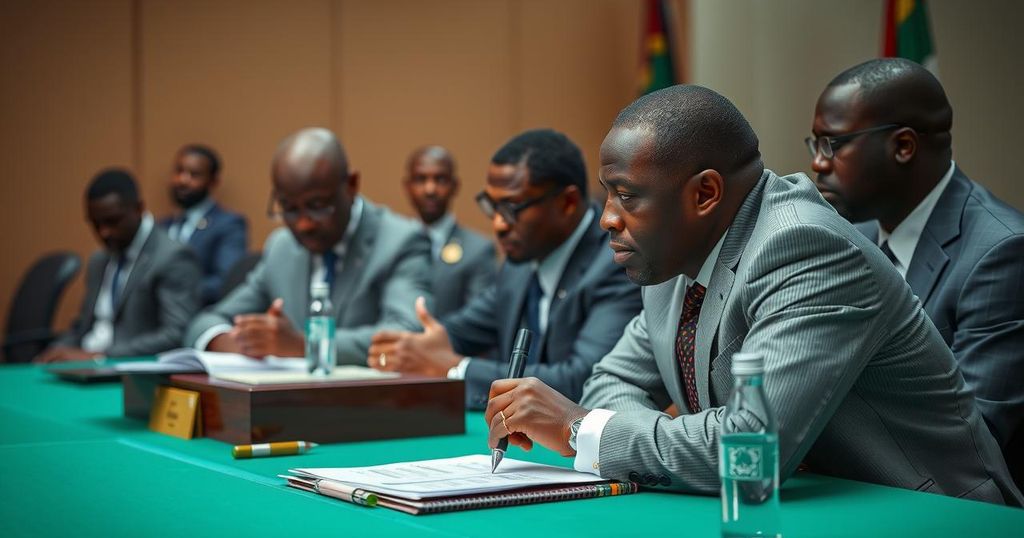GoviEx Uranium Inc. has commenced arbitration proceedings against Niger over the withdrawal of its mining permit for the Madouela uranium project. The Vancouver-based company claims this action violates a 2007 investment agreement. Despite receiving substantial financial interest and making progress on the project, GoviEx asserts that Niger’s actions may hinder regional economic development and seeks compensation through legal means while remaining open to negotiation.
GoviEx Uranium Inc., based in Vancouver, has initiated arbitration proceedings against the State of Niger, asserting that the state infringed upon its legal commitments by rescinding the company’s mining permit for the Madouela uranium project earlier this year. This action has been taken under the Convention on the Settlement of Investment Disputes Between States and Nationals of Other States (ICSID Convention), citing a breach of the 2007 agreement between their subsidiary, GoviEx Niger Holdings Ltd and Niger, as well as violations of local laws.
Since commencing operations in Niger in 2007, GoviEx has progressed the Madouela project from initial exploration to a detailed feasibility study published in late 2022, indicating the project was ready for development despite the political upheaval following the coup d’état in July 2023. The company has successfully attracted over USD 200 million in potential project-related debt financing while conducting social and environmental due diligence, updating its Environmental and Social Impact Assessment, and initiating engineering designs as well as preliminary construction activities.
With the Madouela project’s initial capital expenditure estimated at USD 343 million, it is projected to generate up to 800 jobs throughout its 20-year lifespan and contribute significantly to Niger’s economy through royalty payments and taxes. GoviEx argues that the revocation of its mining rights will adversely affect local economic and social development.
In their statement, GoviEx expressed their desire for an amicable resolution to the dispute, stating, “While the Companies have attempted to settle their dispute with the State amicably … the State has shown no willingness to engage with the Companies to reach an amicable settlement.” The company believes they are entitled to the reinstatement of their rights or appropriate financial compensation due to the conduct of the state regarding the project. Furthermore, they conveyed their commitment to further constructive engagement with the state despite initiating arbitration proceedings.
This legal development follows a broader trend in Niger, where government authorities have also revoked mining permits from other foreign companies, such as Orano’s Imouraren SA and have assumed operational control of the SOMAÏR mine, while concurrently seeking to attract investment from Russia for its natural resources, especially uranium.
GoviEx Uranium Inc. has been actively involved in uranium mining in Niger since 2007. The Madouela project represents a significant investment and has advanced to the level of feasibility, suggesting strong potential for economic benefit. The withdrawal of GoviEx’s mining permit has prompted serious legal implications under international investment agreements, especially amid Niger’s changing political climate, which has seen broader concerns over foreign investments and mining rights in the region. Additionally, the government of Niger has shown interest in engaging with other international entities, raising questions about the future of foreign investments in its mineral resources.
In summary, GoviEx’s initiation of arbitration proceedings against the State of Niger underscores significant legal and economic challenges faced by foreign companies operating in the region. Following the withdrawal of their mining permit for the Madouela project, GoviEx aims to seek compensation and reinstatement of its rights through international arbitration while remaining open to negotiating a resolution with the state. This situation reflects the increasing complexities of investment relations in Niger’s evolving political landscape.
Original Source: world-nuclear-news.org






